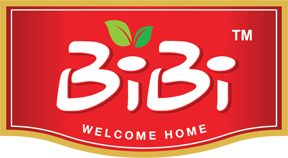Middle Eastern Spices and Herbs: Enhancing Flavors Naturally
Introduction:
The Middle East, a region known for its rich tapestry of cultures and traditions, is equally celebrated for its extraordinary culinary heritage, a significant part of which is its spices and herbs. These natural flavor enhancers are the essence of Middle Eastern cuisine, turning simple ingredients into culinary masterpieces. In this comprehensive exploration, we delve into the world of Middle Eastern spices and herbs, understanding their unique properties, health benefits, and how they can transform your cooking. Discover an array of authentic spices and herbs at BiBi Food, where quality and flavor meet.
The Foundation of Middle Eastern Cuisine:
Middle Eastern cuisine is characterized by its aromatic, bold, and complex flavors. Spices and herbs are not just additions but the foundation of many traditional recipes. They are used to marinate meats, season stews, and enhance the flavors of a plethora of dishes ranging from appetizers to desserts.
Key Spices and Herbs in Middle Eastern Cooking:
- Saffron: Known for its vibrant color and distinct flavor, saffron is a luxury spice used in rice dishes, stews, and desserts.
- Sumac: With its tangy and slightly fruity flavor, sumac is a versatile spice used in salads, meats, and rice dishes.
- Za’atar: A blend of thyme, sesame seeds, and sumac, za’atar is used in marinades, dips, and as a seasoning for bread.
- Cardamom: Valued for its intense, slightly sweet flavor, cardamom is essential in both savory dishes and sweets.

The Art of Blending Spices:
Middle Eastern cuisine often involves the skillful blending of various spices to create unique mixes like Ras el Hanout and Baharat. These blends can vary from region to region and are often passed down through generations, each family having its own secret recipe.
Spices and Herbs for Health:
Beyond their culinary uses, many Middle Eastern spices and herbs are renowned for their health benefits. Turmeric, for instance, is known for its anti-inflammatory properties, while cumin aids digestion. The use of these natural flavor enhancers not only elevates the taste of food but also contributes to overall well-being.
Incorporating Middle Eastern Flavors in Modern Cooking:
Incorporating Middle Eastern spices and herbs into your cooking can bring a new dimension to your dishes. They can be used to add depth to soups, create rubs for meats, or provide a unique twist to classic desserts. Exploring these flavors allows for culinary creativity and experimentation.
Sourcing Quality Spices and Herbs:
For the best culinary experience, it's crucial to source high-quality, authentic spices and herbs. BiBi Food offers a curated collection of the finest spices and herbs, ensuring that you get the true taste of the Middle East in every dish you create.
Conclusion:
Middle Eastern spices and herbs are more than just flavorings; they are a journey into a rich culinary landscape. Their ability to transform the simplest of ingredients into extraordinary dishes is what makes them a staple in kitchens around the world. Whether you are an experienced chef or a home cook, embracing these natural flavor enhancers is a step towards more vibrant and healthful cooking. Visit BiBi Food to explore our collection and start your culinary adventure with the finest Middle Eastern spices and herbs.




